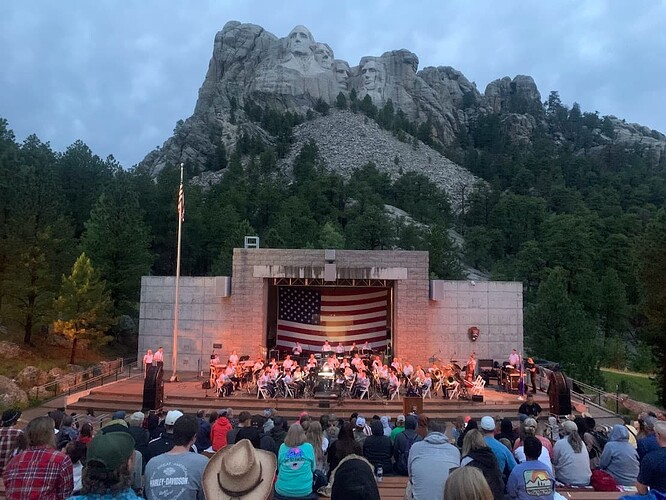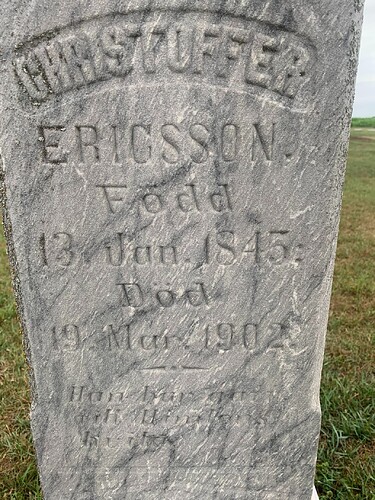For the month of July, we took a family roadtrip from California to Minnesota. On July 3rd we arrived in the Black Hills of South Dakota and came to Mount Rushmore just in time to hear the Air Force Academy band:
Earlier in the trip we’d visited Fort Laramie and learned about the treaty signed there in 1868 which ceded the Black Hills to the Sioux Nation. Last time I visited Mt. Rushmore, I didn’t think about how odd it is to have the faces of four (European-descended) presidents carved in a mountain taken from the Dakota and Lakota people.
The band ended their concert with a medley of the official song of each branch of the military. This was the first time I’ve heard the Space Force song and it’s really hard for me to believe we haven’t fallen for some sort of elaborate hoax. At any rate, the concert was quite patriotic and the crowd was really into it.
And then Darrell Red Cloud was introduced to perform the Lakota Flag Song. Before he started, he talked for a few minutes about his people and how they had fought in ever branch of the military. He was simultaneously proud of his people and patriotic toward the country which had treated them so poorly.
Later in our trip, we visited the cemetery in the farmlands of Minnesota where my grandparents are buried. In the older parts, headstones are marked in Swedish as this was an area where Swedes had immigrated in the late 1800s. Their farms replaced the grassland that once supported huge bison herds and the native people who hunted them. Now the farming culture is slowly dying too as more people move out of rural areas and into large cities such as Minneapolis.
In Minneapolis we visited the Mall of America and noticed a large population of Somali immigrants. For many of the same reasons my ancestors came, they settled together in the largest concentration of Somalis outside of Africa. Back in Burbank, my neighbors on both sides of my house are Armenians who came to our city because it’s just north of Glendale, the “capital of the [Armenian] diaspora”. Roughly a quarter of the students in my kids’ elementary school are second-generation Armenian Americans.
After I wrote the title to the post, I figured I’d look up the lyrics on Google. While I was there, I found that Woody Guthrie’s “This Land Is Your Land” was written as a socialist response to Irving Berlin’s “God Bless America”. Most people think of it as part of America’s patriotic canon, but “This Land” was the home of Native Americans before Europeans forced them into either reservations or assimilation. That makes the song, especially its title, more complicated and not a little troubled. As Sam Yellowhorse Kesler wrote:
Guthrie intended his song to take a critical stance against this country, in a way that was pretty radical for its time. But he also recognized that this country has a lot of beauty to give, which has been corrupted by private interests. It proves it is possible to offer critique and refuge simultaneously. Maybe that same sensibility can be applied to the song itself—taking the good and bad just the same.
There’s no way around the fact that the US government broke the 1868 treaty just 6 years after it was signed because gold was discovered in the Black Hills. Or that the government sent thousands of Japanese Americans to desolate camps during the Second World War. Or the many injustices enacted against African Americans going back to slavery. We must acknowledge these and other stains on our history.
One of the difficulties of history is you can’t change it. Additionally, the future is largely outside of our individual control. It is only in the present that we have any influence at all. For my part, I’m glad that we were able to take a roadtrip across the prairie with my family, learn about history (both sobering and inspiring) and get to know some of the people who call this land home.

